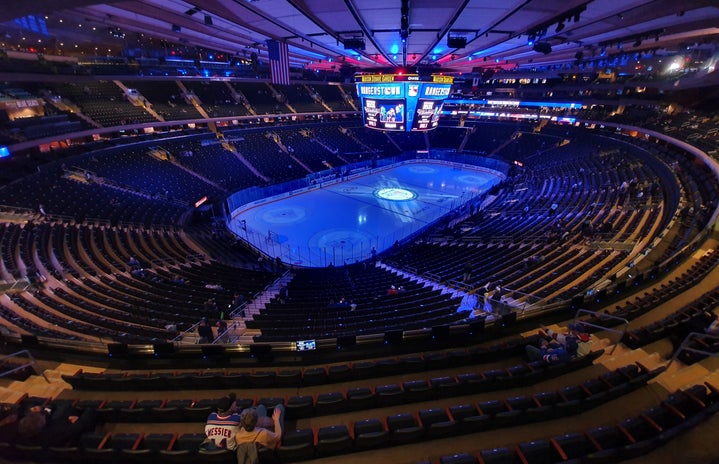It might not be obvious to the regular fan, but sports media is a political industry. I never was a fan of sports (even today), but journalism school has taught me that we are all inherently political, whether we care to acknowledge it or not.
Art, fashion, theatre, and even science and health, politics will always enter an industry at one point or another. Politics is a cycle that comes and goes, and when we are willing to talk about it, we can learn more.
That’s why I’ve decided to challenge myself and write about five Canadian hockey players who changed the sporting industry. These athletes made significant contributions to sports and recreation and are proof that sports and politics are not separated by a fine line.
- Justine Blainey-Broker
-
Unless you took a law class in high school, you may not have heard about Justine Blainey. When she was 12 years old, Blainey filed a lawsuit against the Ontario Hockey Association for sexual discrimination.
In 1981, Blainey had won a spot to play for the Metro Toronto Hockey League Team, but she never got a chance to play because the league didn’t allow women on their team, which was legal under the Ontario Human Rights Code.
She had taken up five legal cases against the code, one of them going all the way to the Supreme Court. In 1986, her case had formally set a precedent under the Charter of Rights and Freedoms, ending discriminatory practices of sports teams across Canada.
She is now the owner of her own chiropractor clinic in Brampton, Ont.
- Brigitte Lacquette
-
In 2018, Brigitte Lacquette made headlines as the first Indigenous woman to play for the Canadian women’s Olympic hockey team.
Hailing from the Cote First Nation in Saskatchewan, Lacquette made Canadian history by playing defence for the Canadian team at Pyeongchang two years ago. Before that, she represented the Canadian women’s team at the International Ice Hockey Federation in 2015.
- Tony Cote
-
Playing in the Winter Games was a major part of Brigitte Lacquette’s childhood, yet none of it would have been possible without Tony Cote– a Chief, veteran and residential school survivor.
Cote was born in 1935 and attended the St. Phillip’s Residential School. He went on to serve in the Korean War.
In 1970, he became Chief of the Cote Nation. Cote also created the Saskatchewan First Nations Summer/Winter Games. He pushed for initiatives that encouraged First Nations youth to get involved in sports and encouraged adults to enter mentorship roles through coaching these teams!
- Reggie Leach
-
During the Cote era, Reggie Leach made history by becoming the first Indigenous man to play in the NHL.
In 1970, he was drafted to play for the Boston Bruins. Over the course of a decade, Leach would go on to play for multiple teams like the Philadelphia Flyers, Detroit Red Wings, and California Golden Seals.
Leach’s legacy would then inspire author Richard Wagamese to write Indian Horse, a novel about hockey and residential schools’ legacy, basing his main character, Saul, off of Leach.
- Angela James
-
Angela James made history by being the first Black-Canadian woman to be inducted into the Hockey Hall of Fame. According to Sportsnet.ca, James represented the Canadian women’s team at the Women’s Hockey World Championships.
Thanks to James, the women’s team took home the gold not one, but three times in the ‘90s!



